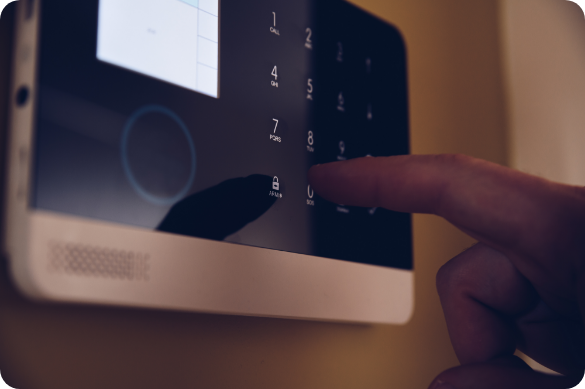09/05/2023
Prevention of False Alarms
1. Training
Try to keep the number of people who operate the system to a minimum and ensure that anyone using your alarm system, including guests and service people, have been properly trained in its use. They should know the passwords, be able to to arm / disarm the system and know how to cancel the alarm if triggered accidentally.
2.Follow Procedure
Always follow the designated entry/exit procedure. Ensure you have all keys, key fobs and alarm system codes available for use, when entering or leaving the premises. It may also help to keep the system manual somewhere easily accessible, as well as any contact information for both the alarm manufacturer and the security service provider.
3.Check Premises before Leaving
Before leaving the premises check that all your doors and windows are actually secured as a strong gust of wind may break the connection between the sensors and activate a false alarm. It may also be worth repairing any windows or doors which do not close properly or can be moved slightly past the frame.
4. Consistency
Where movement detectors are fitted, do not introduce new sources of heat, movement or sound into the protected area. It’s also important to ensure that all sensor devices are unobstructed and have been installed correctly following the manufacturers instructions. This is especially true when systems have been installed by the user rather than by a security professional. It should be noted that in an effort to reduce false alarms caused by incorrect installation, only alarms which have been installed by an accredited security company can qualify for police response.
5. Maintenance
Inform your alarm company immediately of any alterations to your premises which may affect your system, including any damage to the alarm system, its detectors or wiring.
6.Identify the Cause
when resetting the system after a false alarm, establish the cause of activation and call your alarm company immediately to arrange for the system to be reset.
7.Check Power Supply
Most systems will notify the user when battery power is low with an audible warning, however if this is not the case with your systems then sensors should be checked regularly as low batteries can cause false alarms. Systems which rely on mains power should be checked to ensure they are receiving a consistent and uninterrupted power supply.
8. Pets
Security systems can be triggered by pets if not configured properly. Before purchase, consider a system which will allow the sensor sensitivity to be adjusted so that only objects larger than your pet will trigger the alarm.
9. Profesional Inspection
For the ultimate piece of mind, have a professional engineer check your security systems. An experienced technician will be able to easily detect faulty or incorrectly installed equipment. They may also be able to improve system performance by adjusting sensor locations to the optimal position and adjusting system settings accordingly.
Sygma Security are an accredited supplier of security systems and are available for both new system installation and system maintenance. Contact us today for a free quote and site survey.
